A little over 200 years ago the industrial revolution started a chain of events that has led to our disconnection from not only the source our food, but also the thousands of years of handed-down skills and wisdom surrounding it.
These days, our food is in the hands of large corporations, run by men, whose aim is to make money.
Yet food is so much more than money. The way we feed ourselves, our families and our communities is do-or-die fundamental to our bodily and mental health, our communities, our economies and our environment. Up until a few short generations ago the ways we produced food enhanced those things – our meals were made from what the local land could give and prepared with handed-down wisdom.

Since money took the reigns, that has slowly disintegrated. And with that disintegration, we have lost so much. So much health, so much connection, so much empowerment, so much knowledge. And at the same time as that loss, we have been slowly destroying the very source of our life, the soils, the earth, the environment.
Eating ancestrally aims to turn this around. By choosing to step out of the industrial food system and instead learning from, practising and eating the way our forebears ate, we can reclaim our kitchens, our health, our supply chain and our community. All whilst knowing we are doing something that given half a chance can restore the health of our world.
In practise, eating ancestrally means looking at how pre-industrial cultures found, grew, prepared and ate food; before profit and planes came into the picture. When human health and keeping the land fertile mattered.
There is a lifetime’s worth of wisdom in the kitchens of our past. Here’s how to bring some of that to our modern fingertips:
Eat what is local and in season

Our ancestors ate the food that the land around them could provide, in the season it could naturally provide it. They did this through necessity – being responsible for your own food is arduous and they knew working with the seasons would not only provide for them but also respect the soil. Eating ancestrally in a modern kitchen means following this strategy. If you live by the sea, include locally-caught fish in your diet. If goats and sheep thrive on the hilly landscape around you, cultivate, or look for local, meat and dairy. Summer fruits are to be enjoyed and preserved in the warmth, whilst winter ushers in new crops and dishes suited to the cold.
Cook meals at home, from scratch
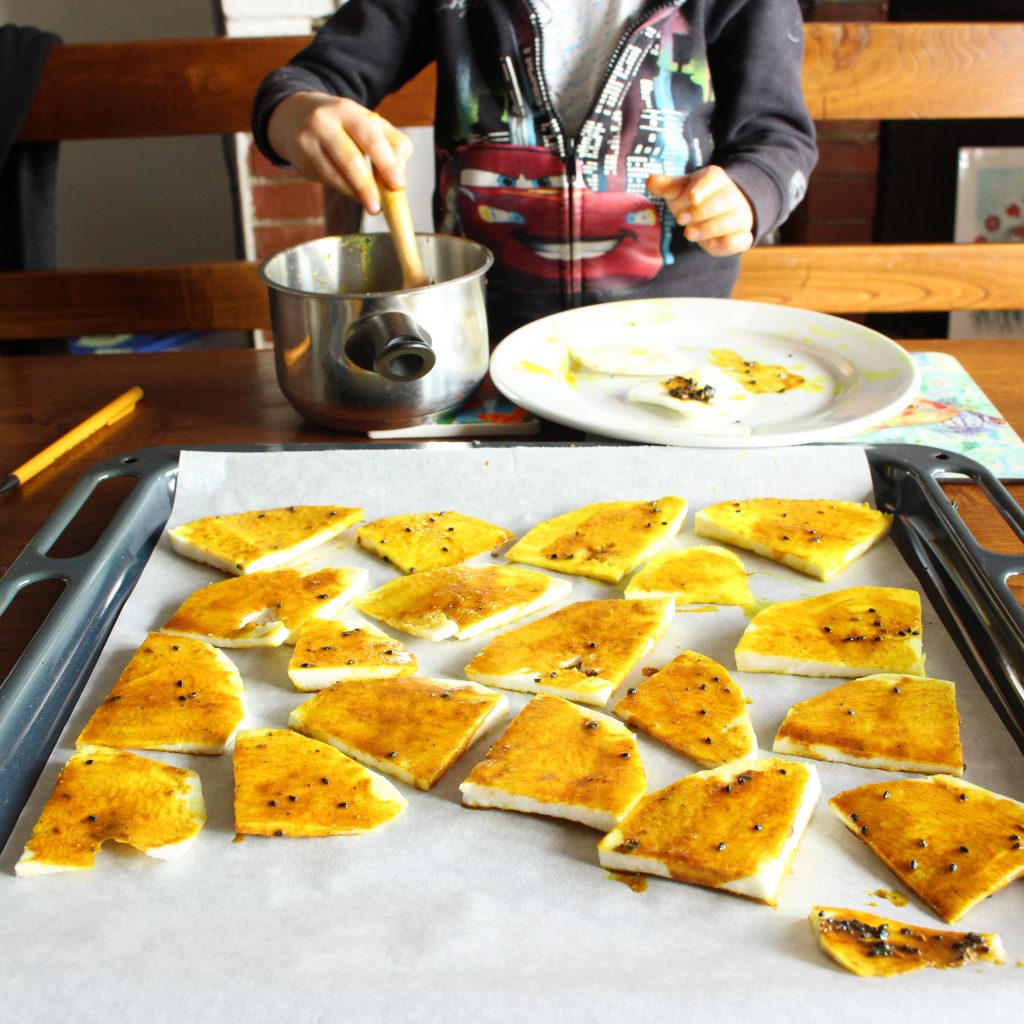
Until recently, the hearth was the centre of a home. It was a place where ingredients were lovingly prepared for the table, from scratch, with wisdom learnt at apron-strings. When we eschew mass-produced food, our kitchens come to life – becoming the centre of the magical transformation of fresh produce into healthy, life and joy-giving meals.
Consume animals raised and fed naturally

Pre-industrialisation, animals were raised in the landscapes that they were most adapted to, and they ate what those environments provided for them. This is a world away from the grain-fed, feed lot animals that the coming of mass-transportation heralded. The nutritional profile of and farming practices that surround locally-adapted and raised animals, fed on foods they evolved eating is invaluable to personal and environmental health. Eating ancestrally means striving to serve this type of animal produce at our tables.
Eat all the animal

Traditionally, where animals were available to our ancestors as food, they were prized. This meant using every single part of them. The muscle meat yes, but the innards, the head, the bones too. An ancestral kitchen sees dishes with an array of offal, stock made with bones, and fats rendered to use in cooking.
Use real fat

Along with the whole animal, comes the fat that our predecessors were able to produce from it. Lard comes from pig fat; tallow from a cow. These fats are ready to use in the kitchen with minimal processing. They differ vastly from the highly-processed mono-cultured vegetable oils that have glided onto our supermarket shelves the last 50 years. Animal fats sustain us, give our brains the food they need and they need no other processing or packaging than what can be done in the tiniest kitchen.
Process grains
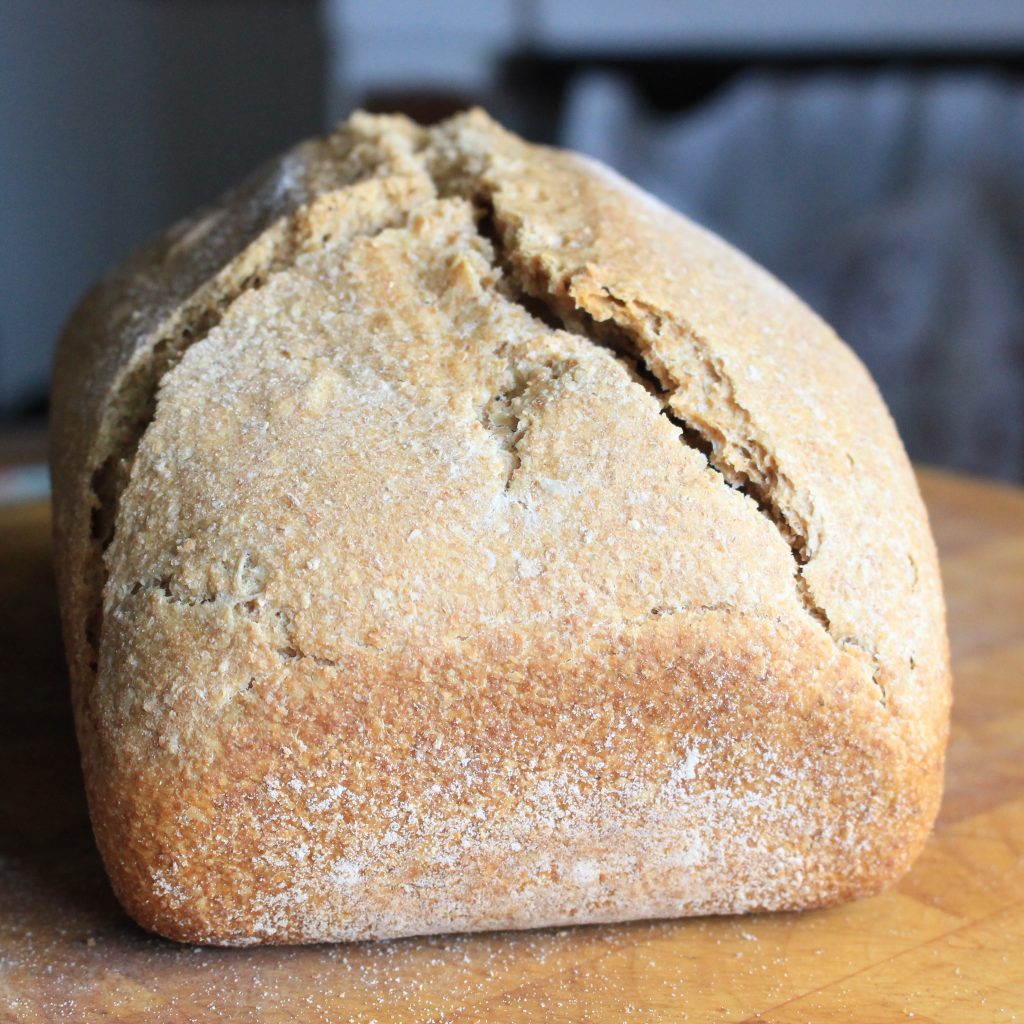
Our ancestors started to farm grains over 12,000 years ago, but it was likely they were eating them long before then. They would not, however, recognise the array of grain and bread products available to the average shopper today. Grains have historically been eating processed – i.e. fermented (think sourdough), in order to neutralise the toxic compounds they can contain and pre-digest them making them easier on our bodies.
Include fermented foods in your diet
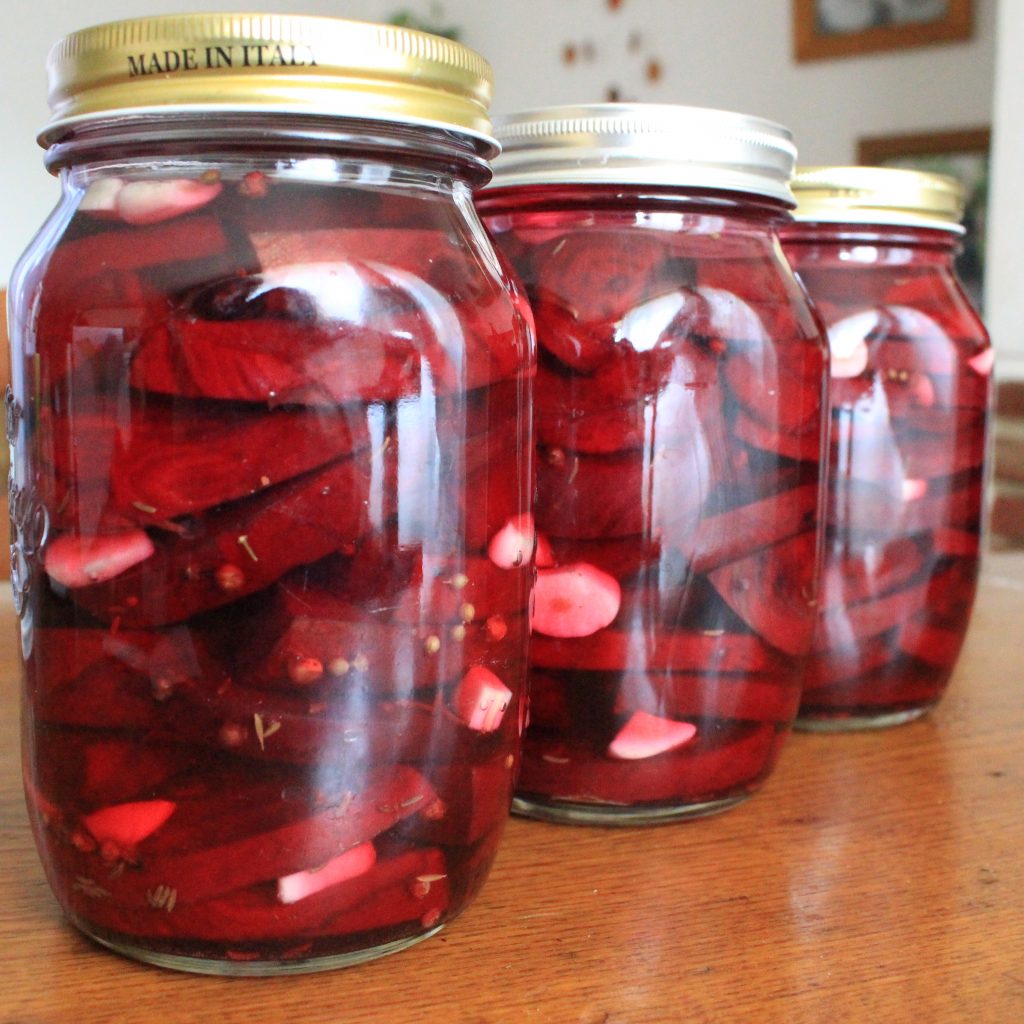
Every long-lived culture has included some from of fermented foods in their diet. From sauerkraut, the fermented cabbage, eaten with meats in Germany, to kimchi, yogurt and kvass – these foods preserve fresh ingredients but also, importantly, provide live probiotic bacteria on a regular basis for our guts.
Modern science is just beginning to show us how important so many of these things are for our health:
- That sourdough bread is easier to digest and healthier than packaged bread
- That offal contains more nutrients than any other part of an animal
- That eating fermented foods regularly can change our microbiome and therefore our immune system
- That time spent in the kitchen is good for our mental health and binds together our families
- That local and seasonal foods are higher in nutrients
Our ancestors did all these things, yet they had no science. They just knew it made sense.
Eating ancestrally, for me, means taking a stand for my health and the health of my family, caring about my community and doing what I believe will create a better world. And all this whilst I’m joyfully in the kitchen, hands wrist-deep in bowl of local grain sourdough.

Below are articles whose information I used in the bullet points towards the end of this piece:
https://www.healthline.com/nutrition/organ-meats#TOC_TITLE_HDR_7
https://www.theatlantic.com/health/archive/2014/07/the-importance-of-eating-together/374256
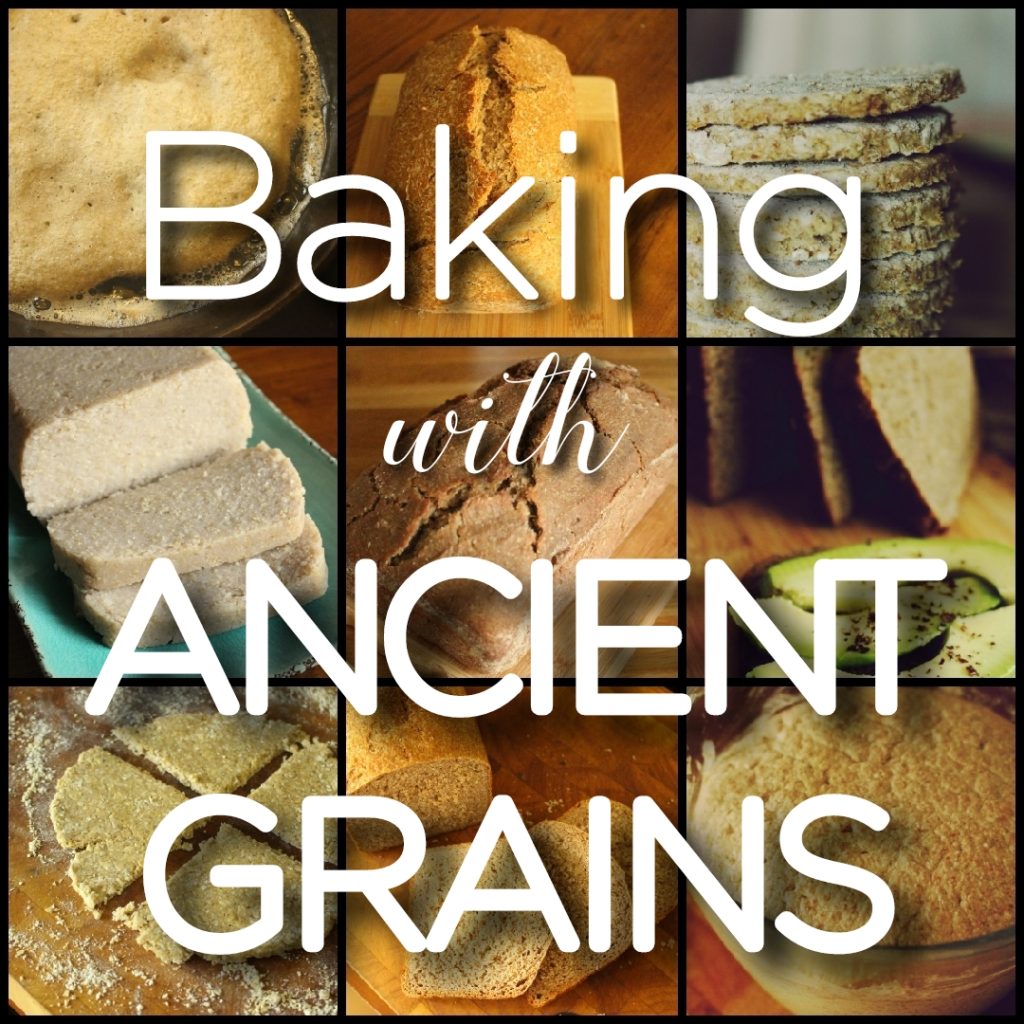
Bring ancient grain baking into your kitchen!
Download my free 30-page guide with five healthy and tasty 100% ancient grains recipes.
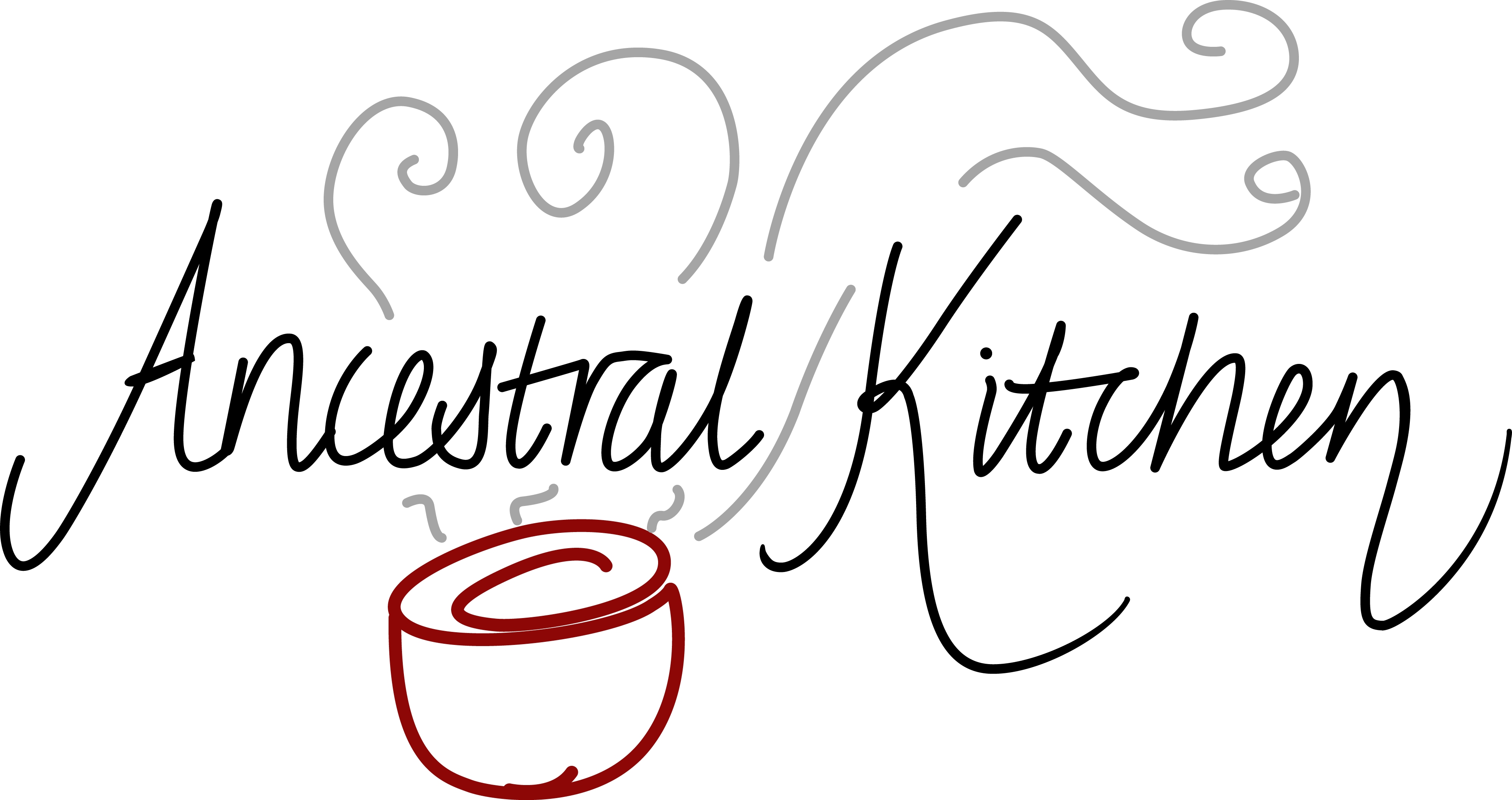

these are all great ways to eat, but the reality for many of our parents and grandparents in greece and italy was grinding poverty and being hungry every day….romanticizing these struggles to survive is something I cannot do. I know what my and my husband’s ancestors suffered. My mother in law was so poor her mother sent her to live in an orphanage because there wasnt enough food for her at home….scrounging leftover olives and boiling dandelions is not romantic….and the diets of these past days is definitely not something we should try to emulate. As with everything in life, its all about balance.
I agree that poverty was unlike anything most people born after the world wars can even imagine. But I also see that our industrial food systems and global health is broken. We need to find another way – and unless we learn from the creativity our ancestors displayed in the face of hardship and the respect they had for the land and what it could give I think our society is headed for failure.
What a stupid comment. Sorry but my ancestors also struggled. But it doesnt really have to do with the food really. But rather the government. Its just the same today they could feed more people but dont. Also since the industrial after the war you cant to all the things people dit before. Like raising pigs slaughter them yourselfs. A lot of poverty is al to blame of the government and their grip on food and products. Instead of wining you can forage dandelions its just good eating. I dont get why you shouldnt forage for those greens. In some places its still eating like that in asia there is also still to this day foraging for greens in the wild. Go eat your extreme processed food and be happy with it